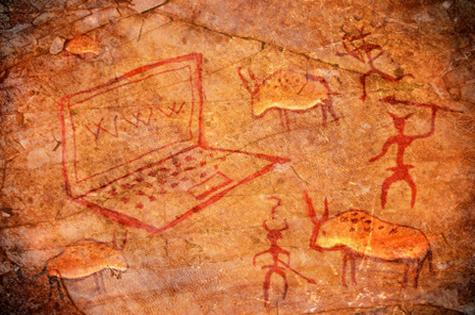Australians collectively spend a whopping $1 million a day on fad diets, one of which is the ever-trendy Palaeolithic Diet. But while the ‘Paleo chic’ diet enjoys more popularity than ever, even taking out the title of most searched diet term on Google in 2013, it’s one that has nutritionists well and truly divided.
According to experts like Ravinder Lilly, nutritionist for USANA Health Sciences, while a diet promoting the idea of ‘back to basics eating’ might appear sexy, there is very little scientific evidence indicating that we should be taking diet cues from our prehistoric ancestors.
“The Paleo diet is based on the premise that ‘if a caveman didn’t eat it, then you shouldn’t eat it either’, and asserts that illnesses such as diabetes, obesity and heart disease are credited to ‘modern civilisation’. However, while cutting down on preservative-heavy processed foods is beneficial, the idea that prohibiting any food not available to Stone Age hunter-gatherers is illogical,” says Ravinder.
Ravinder gives five reasons why the caveman movement might not be the answer dieters have been looking for.
1. Our genetics have evolved, so why wouldn’t our diet?
Food has been a huge driver of evolution. As diets change, the human body adapts to ease digestion. When our ancestors thrived off of plants and berries, their digestive systems worked in one way to break this food into fuel. Once meat was introduced, the body’s way of digestion changed.
2. We couldn’t accurately replicate the diet of cavemen anyway
Even if our bodies did break food down the same way they did 10,000 years ago, eating the same way the Palaeolithic humans did would be impossible. Not only are we unaware of our ancestors’ portion sizes, but today’s meat is not the same as what the hunter-gatherers indulged in. Animals bred today are far different than wild game. For instance, it would be impossible to follow a Palaeolithic diet high in fish without consuming a dangerous amount of mercury.
3. There is little stated about saturated fat
Meat-heavy diets can open doors to artery-clogging LDL-cholesterol and saturated fat, especially for someone who may not typically eat much meat. Studies have found that people who consume about one serving of red meat (beef, pork or lamb) per day had a 13% increased risk of mortality.To make matters worse, the Paleo Diet restricts whole grains, which moderates cholesterol levels.
4. Cutting out food groups is never good
The basic food pyramid exists as a reference for a balanced and healthy diet. Eliminating whole food groups creates an imbalanced diet, which can be problematic when it comes to long-term weight-loss, maintaining a low cholesterol level and generally remaining healthy. Research shows that nutrients in legumes, whole grains and dairy (all restricted by the Paleo Diet) help lower risk of osteoporosis and cardiovascular disease.
5. Eliminating pleasure usually equals failure
We don’t need to turn to science to know that deprivation is not a lifelong solution. When we eliminate things we love to eat, we are less likely to stick with it, and more likely to binge.
According to Ravinder, eating plans such as the Mediterranean diet are a much more informed and balanced option for dieters.
“A Mediterranean diet involves a large portion of vegetables, fruits and nuts with moderate meat servings, typically fish. The Mediterranean diet has proven benefits in preventing heart disease and also promotes longer life.
“Additional studies show that Mediterranean-style diets are significantly associated with higher HDL-cholesterol and lower LDL (“bad”) cholesterol. A Mediterranean diet is healthier for the brain and heart, and has proven to also benefit those who adopt this diet later in life.”



















__small.png)










